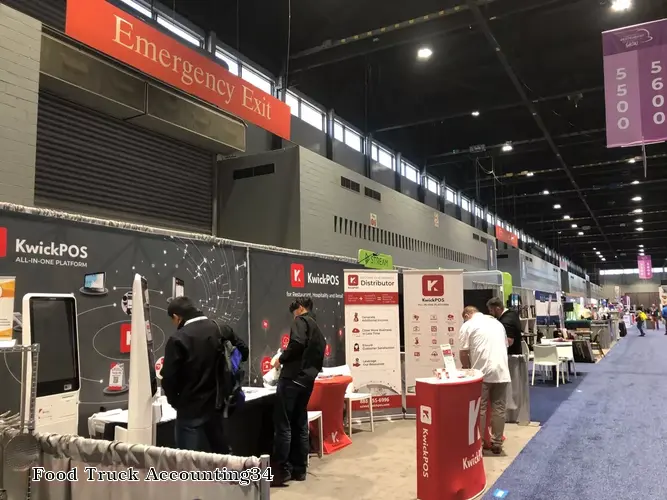

Food trucks have become increasingly popular over the years, and it's easy to see why. They offer a unique way to serve delicious food to customers in a fun and mobile setting. However, running a successful food truck business requires careful planning, organization, and attention to detail - especially when it comes to accounting.
That's right, folks, we're talking about food truck accounting! It may not be the most glamorous aspect of the food truck business, but it's a crucial one. After all, you want to make sure you're keeping track of your expenses, staying on top of your finances, and making sure your business is running smoothly.
So, what do you need to know about food truck accounting? Let's dive in and take a look!
1. Expenses, expenses, expenses: When running a food truck business, you'll have a lot of expenses to keep track of. There's the cost of ingredients, fuel, maintenance, marketing, and labor, just to name a few. It's important to keep track of every expense, no matter how small, to ensure you have a clear picture of your business's financial health.
2. Categorize your expenses: To make things easier, it's a good idea to categorize your expenses. For example, you could create categories for food costs, fuel, marketing, and so on. This will make it easier to see where your money is going and identify areas where you can cut costs.
3. Keep track of your inventory: Inventory management is crucial for any food business, and food trucks are no exception. You'll need to keep track of your ingredients, including what you have on hand, what you've used, and what you need to order more of. This will help you avoid running out of ingredients during a busy lunch rush or, even worse, having too much food go to waste.
4. Invoicing and accounting software: Speaking of inventory management, invoicing and accounting software can be a huge help. There are many different options available, ranging from QuickBooks to Xero, and they can help streamline your accounting processes, including invoicing, expense tracking, and inventory tracking.
5. Taxes: Ah, taxes - the bane of every business owner's existence. As a food truck owner, you'll need to file taxes for your business, including sales tax, employment tax, and income tax. It's a good idea to consult with an accountant or tax professional to ensure you're doing everything correctly.
6. Budgeting: A solid budget is essential for any business, and food trucks are no exception. You'll need to create a budget that accounts for all your expenses and projected income.
7. Cash handling: Food trucks primarily deal with cash transactions, so it's vital to have a system in place for handling cash. You'll need to have a secure way to store cash, a system for counting and reconciling cash at the end of the day, and a process for depositing earnings into your business account.
8. Sales tracking: Keeping track of your sales is crucial for understanding your business's performance. You'll need to keep track of daily sales, reconcile them with your cash handling processes, and use the information to make smart decisions about inventory management, pricing, and promotions.
9. Cost control: As a food truck owner, you'll need to keep your costs under control to ensure profitability. This means monitoring expenses, finding ways to reduce waste and optimize inventory use, and adjusting your menu to ensure it's profitable.
10. Professional advice: Accounting can be complex, so don't be afraid to seek professional advice. Consider hiring an accountant or bookkeeper who can help you navigate the ins and outs of food truck accounting.
In conclusion, food truck accounting requires careful planning, organization, and attention to detail. By understanding your expenses, inventory, taxes, and sales, and by implementing solid accounting practices, you'll be well on your way to running a successful and profitable food truck business.
Now, go get 'em, food truck owners! Serve up some delicious food, keep those finances in order, and make your business thrive!
DISCLAIMER: This information is provided for general informational purposes only, and publication does not constitute an endorsement. Kwick365 does not warrant the accuracy or completeness of any information, text, graphics, links, or other items contained within this content. Kwick365 does not guarantee you will achieve any specific results if you follow any advice herein. It may be advisable for you to consult with a professional such as a lawyer, accountant, or business advisor for advice specific to your situation.
today
Copyright © 2026 Kwick365.com
Designed by KwickPOS is the best restaurant POS